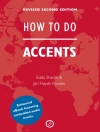This collection of published and unpublished essays connects antiquity with the present by debating the current prohibiting conceptions of performance theory and the insistence on a limited version of ‘the contemporary’.
The theatre is attractive for its history and also for its lively present. These essays explore aspects of historical performance in ancient Greece, and link thoughts on its significance to wider reflections on cultural theory from around the world and performance in the contemporary postmodern era, concluding with ideas on the new theatre of the diaspora.
Each section of the book includes a short introduction; the essays and shorter interventions take various forms, but all are concerned with theatre, with practical aspects of theatre and theoretical dimensions of its study. The subjects range from ancient Greece to the present day, and include speculations on the origin of ancient tragic acting, the kinds of festival performance in ancient Athens, how performance is reflected in the tragic scripts, the significance of the presence of the chorus, technology and the ancient theatre, comparative thinking on Greek, Indian and Japanese theory, a critique of the rhetoric of performance theory and of postmodernism, reflections on modernism and theatre, and on the importance of adaptation to theatre, studies of the theatre and diaspora in Britain.
Table des matières
Introduction
Section A: Greek theatre and theory
Preface
1. ‘Hypokrinesthai in Homer and Herodotus, and the Function of the Athenian Actor’, Philologus 127.1 (1983)
2. ‘Performance and Performatives’, Journal of Dramatic Theory and Criticism 13.1 (1998)
3. “Monody, Choral Song, and Athenian Festival Performance’, Maia xlv.2 (1993)
4. “The Presence of the Chorus”, unpublished essay developed from a paper given at a conference at Northwestern University, Chicago, October 2010.
Section B: Greek theatre practice
Preface
5. Graham Ley and Michael Ewans, ‘The orchestra as Acting-area in Greek Tragedy’, Ramus 14.2 (1985)
6. ‘Performance Studies and Greek Tragedy’, Eranos 92 (1994)
7. “The Nameless and the Named: Techne and Technology in the Ancient Athenian Theatre”, Performance Research 10.4 (2005)
Section C: Performance theory
Preface
8. ‘Sacred Idiocy: the Avant-garde as Alternative Establishment’, New Theatre Quarterly 28 (1991)
9. ‘The Rhetoric of Theory: the Role of Metaphor in Peter Brook’s The Empty Space’, New Theatre Quarterly 35 (1993)
10. ‘Richard Schechner’s `The Future of Ritual’: the Final Chapter’, Performance Research 3.3 `On Ritual’ (1998)
11. ‘Aristotle’s Poetics, Bharatamuni’s Natyasastra, and Zeami’s Treatises: Theory as Discourse’, Asian Theatre Journal 17.2 (2000)
12. ‘Theatrical Modernism: A Problematic’, in A.Eysteinsson and V.Liska (eds.)A Comparative History of Literature in European Languages: Modernism. Amsterdam: John Benjamins, (2007)
13. “Discursive Embodiment: The Theatre as Adaptation”, Journal of Adaptation in Film and Performance 2.3 (2009)
14. “The Critical Absence of a Postmodern Reception Theory of Live Performance”, unpublished editorial contribution to Baz Kershaw and Graham Ley (eds.), “Beyond Postmodernism”, Contemporary Theatre Review 3.18 (2008).
Section D: Diaspora theatre
Preface
15. “Composing a History: Problematics of the British Asian Research Project at Exeter”, Studies in Theatre and Performance 30.2 (2010)
16. “Theatre and Diversity” – unpublished English-language version of the paper delivered in Cologne and published in W.Schneider Theater und Migration: Herausforderung fur Kulturpolitik und Theaterpraxis. Bielefeld: Transcript, (2011)
17. “Diaspora Space, the Regions, and British Asian Theatre”, New Theatre Quarterly 107 (2011)
Conclusion
A propos de l’auteur
Graham Ley is Professor Emeritus of Drama and Theory at the University of Exeter. He has taught drama in the Universities of London and Auckland as well as Exeter, and has directed and translated for the theatre. He was dramaturg to John Barton in Tantalus directed by Peter Hall (Denver USA, 2000, UK, 2001).His particular interests lie in comparative performance theory, dramaturgy, performance in the ancient Greek theatre, and British Asian theatre. He held a Leverhulme Fellowship in 2000-2001, and was the award-holder for an AHRC-funded research project on the history of British Asian Theatre, active from October 2004 to March 2009.In July 2010 he was invited to give a keynote on British Asian Theatre at the conference Theater und Migration at the Comedia Theatre in Cologne. In January 2013 he was invited to contribute to one of a series of causeries at the Witte de With Centre for Contemporary Art in Rotterdam, as part of the activity surrounding the preparation of Alexandre Singh’s work, The Humans. In September 2014 he was asked to compile the timeline on the history of British Asian theatre production in London for the programme of the London revival of East Is East, at the Trafalgar Studios which opened in October.His books include A Short Introduction to the Ancient Greek Theater (2nd edition, 2006) and The Theatricality of Greek Tragedy (2007). In 2014 he published Ancient Greek and Contemporary Performance: Collected Essays and Acting Greek Tragedy, a workshop-approach with an associated website at actinggreektragedy.com












